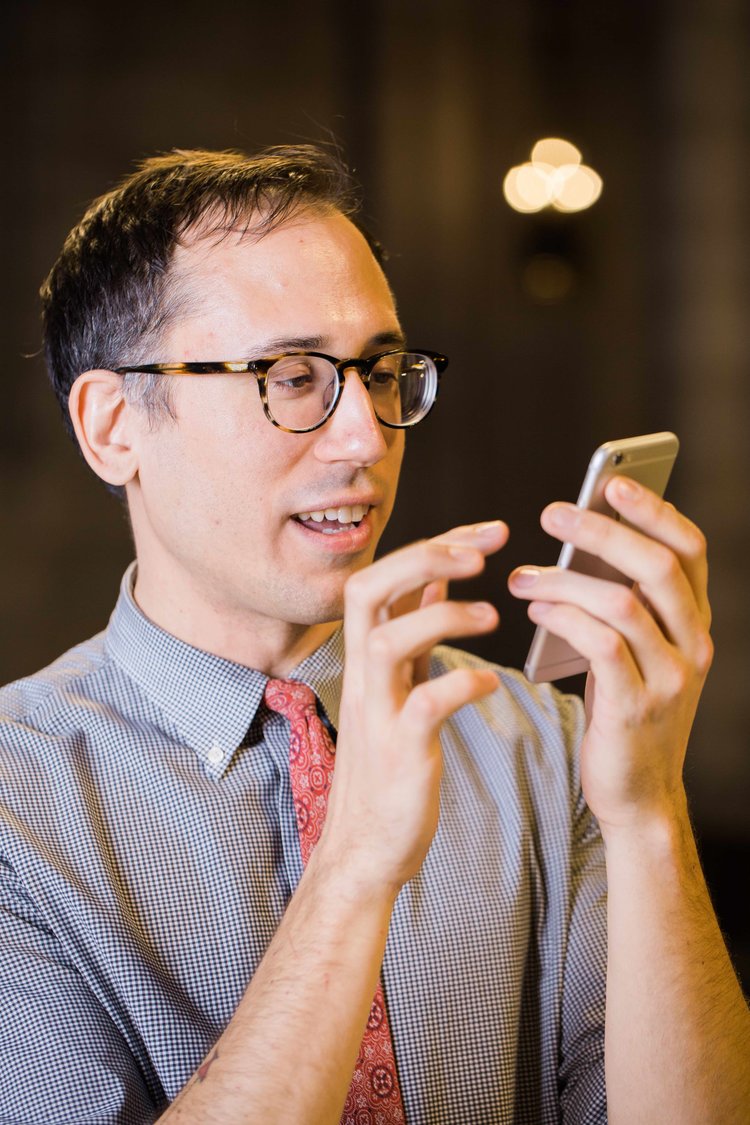Jim Keat: Real Ministry in a Digital World
When I was learning Greek and Hebrew in seminary, I decided to teach myself HTML and CSS, thinking if these dead languages from the past would help me as a pastor, then surely these living languages of our present and future would be helpful for the future of the church. I am in no way fluent in any of them now, knowing just enough to be dangerous with an interlinear Bible or on the backend of a website. Learning to parse verb stems and < div > tags set me on a path to value the church in person and the church online. Now more than ever, the future of former depends on the latter.
Willa is 90 years old and lives in New Jersey—close enough to catch a glimpse of the Manhattan skyline on a clear day but far enough to require a car in order to make it into the city. She’s perfectly happy with her life in New Jersey, except for one thing: her church is in the city and her friend who would drive her in on Sundays passed away seven years ago. Willa has tried to connect with congregations in her neighborhood but none of them feel like the church home she is used to. She misses connecting with the people, seeing their faces and being seen in return. And so when she received a message saying that her church would not be meeting in person and would only gather online during this pandemic, she was curious to find out more.
Willa clicked a link on her church’s website and suddenly she saw her pastors reading scripture and preaching from their own homes. She saw the choir on screen like the Brady Bunch, singing hymns and inviting everyone to sing along from home. After the benediction one of the pastors mentioned a Virtual Coffee Hour. Willa clicked another link, a small green dot lit up on the front of her computer, and her screen was filled with the familiar faces and voices of her church family.
The phrase “IRL” emerged in the early days of the internet, popping up in AOL chat rooms in the 90s and eventually making it into the Oxford English dictionary in 2000. It stands for “in real life” and is often used to distinguish that which happens online from the world around us. Only as we are all thrown into the deep end of church online, we are realizing that this phrase and its distinction between the internet and “real life” is beginning to break down. Because our online connections are real connections. Virtual is not the opposite of real, it’s the opposite of physical. They are both real. Everything is IRL.
This has always been true but is especially important now when these online spaces and virtual connections might be all we have.
When you respond to someone’s post on social media, that’s pastoral care.
When you reflect on scripture on Instagram Live, that’s preaching.
When we smile and laugh together on what can feel like endless video calls, that’s passing the peace.
In whatever ways you are engaging your congregation online during these COVID-19 times, know that this is the real work of ministry that we are called to—real ministry in our digital world. Because even though we can’t connect in person the ways we typically would, we can still connect in real life, embodying a modification to the prayer Jesus taught us:
“Your kingdom come, your will be done, online as it is in heaven.”
.......

Rev. Jim Keat is the Digital Minister at The Riverside Church in New York City and the Director of Online Learning for Convergence, a diverse collective of faith-based leaders, learners, artists, activists, learners, communities, and congregations. He is the producer of original media projects from The Riverside Church like Be Still and Go and The Word Made Fresh as well as the creator of the Thirty Second Bible project and Thirty Seconds or Less.
Twitter | @IdeasDoneDaily
Facebook | @IdeasDoneDaily
Instagram | @IdeasDoneDaily
Website | JimKeat.com
Website | freeandsimple.life
Website | trcnyc.org
YouTube | youtube.com/TheRiversideChurch
YouTube | youtube.com/FreeAndSimple
Podcast | trcnyc.org/BeStillAndGo
......
Used with permission. Originally posted on Church Anew, a ministry of St. Andrew Lutheran Church in Eden Prairie, MN.
Church Anew is dedicated to igniting faithful imagination and sustaining inspired innovation by offering transformative learning opportunities for church leaders and faithful people.
As an ecumenical and inclusive ministry of St. Andrew Lutheran Church, the content of each Church Anew blog represents the voice of the individual writer and does not necessarily reflect the position of Church Anew or St. Andrew Lutheran Church on any specific topic.
